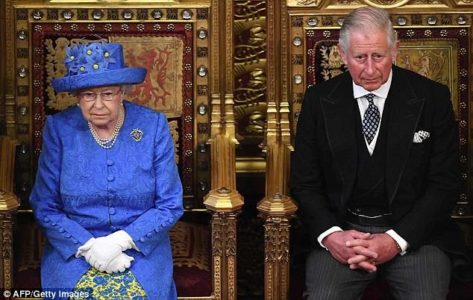Ich bin ein Brexiter
Despite the efforts of EU negotiators, Brexit can hit citizens’ rights hard

The good news of the week is that the Queen’s heart is with the EU, as she has very sophisticatedly shown by wearing for the first time a blue hat with yellow flowers instead of the crown while reading her annual speech. But despite her majesty’s sympathy, the future of 3.2 million EU citizens residing in the UK and 1.2 million British living outside their country remains a worrying puzzle.
The UK government is supposed to publish its position about citizens’ rights on Monday. Nevertheless, some confusing details are already known since British Prime Minister Theresa May shared parts of her “fair and serious offer” with her colleagues at the European Council summit. After Brexit, EU citizens who have lived in the EU for five years or more would be given a “settled status” that would grant them the same benefits and rights for education, healthcare, and pension. For the moment, it is unclear from when this five-year period would be counted, but it must be between triggering article 50 in March and the final departure from the EU. There would be some solutions for those who have been staying in the UK for less than five years, but the details are also unclear so far.
The European Commission has already revealed its opinion earlier this month and proposed a comprehensive position paper to ensure that citizens should not suffer from Brexit. However, a simple catalogue of rights will surely not be sufficient for the EU that insists on the effective enforcement of those rights, as Stefaan De Rynck, advisor to the European Union’s Article 50 Task Force has clearly pointed out in his speech at ECAS’ conference this week in Brussels. But it will be a sort of “mission impossible” to do so, because no matter how the EU wants the European Court of Justice (ECJ) to remain as an ultimate judicial authority in complex individual cases, the idea is unacceptable for the UK that really wants to take back all control from the EU. So, no matter how fair and serious the UK’s offer is, EU negotiators won’t be able to accept it without the jurisdiction of the ECJ. These clashing views may lead to a block during the negotiations.
The future’s compelling uncertainty has already made an impact on people’s way of thinking, suggests a survey carried out by ECAS and Citizen Brexit Observatory. The researchers asked British citizens residing in other Member States of the EU and EU citizens living in the UK about their expectations, fears and hopes concerning the Brexit. Not very surprisingly, 96% of UK and 86% of EU respondents found themselves personally affected by Brexit. Both groups worried about restrictions on their freedom of movement. UK citizens feared rather about losing their EU citizenship and European identity, while EU respondents mentioned xenophobia and discrimination as possible problems in the future.
The survey also asked about the most appreciated EU citizenship rights. While UK citizens’ most popular choice was the right to live in another EU country, slightly bigger proportion of EU people have chosen the right to work in another EU country as most relevant advantage of EU citizenship. A good number of the British mentioned also the importance of the right to access public health services in another Member State and the right to enter another European country by visa. At the same time, EU citizens’ second and third choice was the right to live in another European country and the protection against being discriminated on grounds of nationality, age, beliefs, disability or sex. Without the jurisdiction of the ECJ, these rights will hardly be enforced the same way after the country’s departure from the EU.
Besides the Queen’s hat, there is another piece of good news this week concerning Brexit. The study shows that the fair majority of EU citizens (58%) and three-quarters of UK people became more active politically and socially in the last year, by spending more time in gathering information about politics or being more involved in campaigns and party activities. Even if it is a bit too late.
